What is a podcast? A podcast is a captivating form of digital audio, offering a series of episodes available for download or streaming, similar to a radio show but with the freedom to listen anytime, anywhere. At WHAT.EDU.VN, we understand the allure of on-demand content and are here to explore the world of podcasts. Discover exciting audio programs today and unlock a realm of information and entertainment.
1. Understanding the Core: What Is a Podcast? (Podcast Meaning and Definition)
A podcast is a digital audio file, typically part of a series, that’s readily available on the internet for listeners to download or stream via a listening app. Episodes often feature spoken-word content from a host or multiple hosts, although many shows incorporate music and sound effects to enhance the experience. These episodes, and the overall show, tend to focus on specific themes, such as health, technology, or personal growth. Podcasts offer on-demand access to diverse content, allowing listeners to choose what they want to hear and when, enhancing their learning and entertainment.
1.1. Deciphering “Podcast” and “Episode”
The term “podcast” itself can be interpreted in different ways. Sometimes, it refers to the entire program that produces the episodes, while other times it refers to the individual episodes themselves.
For example:
- “I love the TED Talks podcast.” (Here, “podcast” means the show.)
- “I just downloaded a new podcast from TED Talks.” (Here, “podcast” means an episode of the show.)
Context is essential in understanding whether someone is referring to the show or a specific episode. Generally, it’s clearer to use “podcast” to refer to the overall show and “episode” for individual installments.
1.2. Popular Podcast Examples
To get a better grasp of what a podcast is, explore some of the most popular shows:
| Podcast | Category | Description |
|---|---|---|
| The Daily | News | A daily news podcast from The New York Times, hosted by Michael Barbaro, offering in-depth reporting on current events. |
| Crime Junkie | True Crime | A true-crime podcast hosted by Ashley Flowers and Brit Prawat, covering various crime stories with detailed narratives and investigative reporting. |
| The Joe Rogan Experience | Interview | Hosted by Joe Rogan, this podcast features long-form conversations with a diverse range of guests, including comedians, scientists, and athletes. |
| Stuff You Should Know | Educational | An educational podcast hosted by Josh Clark and Chuck Bryant, exploring a wide range of topics from science and history to pop culture. |
| This American Life | Storytelling | A weekly public radio show and podcast hosted by Ira Glass, featuring compelling stories and personal narratives. |
| Call Her Daddy | Society & Culture | Hosted by Alex Cooper, this podcast dives into modern relationships, sex advice, and social issues with a bold and candid approach. |
| SmartLess | Comedy | Hosted by Jason Bateman, Sean Hayes, and Will Arnett, this podcast features interviews with celebrity guests, creating humorous and insightful conversations. |
| Office Ladies | TV & Film | Hosted by Jenna Fischer and Angela Kinsey, this podcast revisits episodes of “The Office,” providing behind-the-scenes stories and fun facts. |
| TED Talks Daily | Educational | Featuring a new TED Talk each weekday, this podcast covers a wide array of topics from science and technology to global issues and personal growth. |
| The Ben Shapiro Show | News & Politics | Hosted by Ben Shapiro, this podcast offers conservative commentary and analysis on current events and political issues. |
| How I Built This with Guy Raz | Business | A podcast hosted by Guy Raz, interviewing founders and entrepreneurs about the stories behind their companies. |
| Pod Save America | News & Politics | Hosted by Jon Favreau, Jon Lovett, Dan Pfeiffer, and Tommy Vietor, this podcast offers progressive commentary on American politics and current events. |
| Radiolab | Science | A science podcast hosted by Jad Abumrad and Robert Krulwich, exploring scientific topics through storytelling and sound design. |
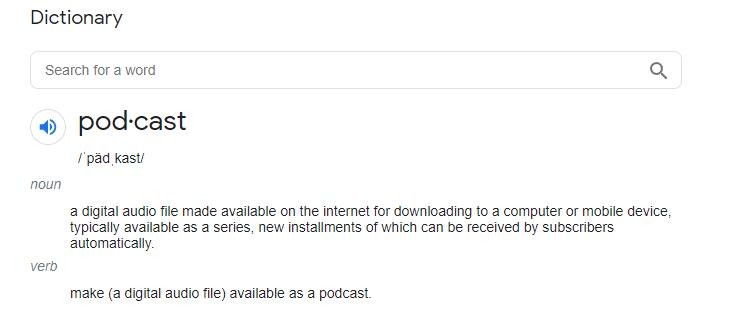
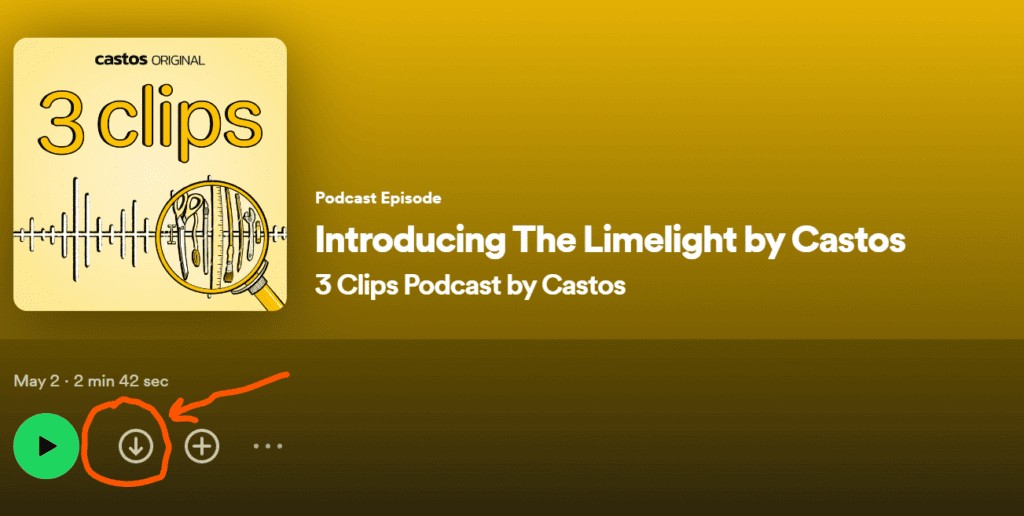
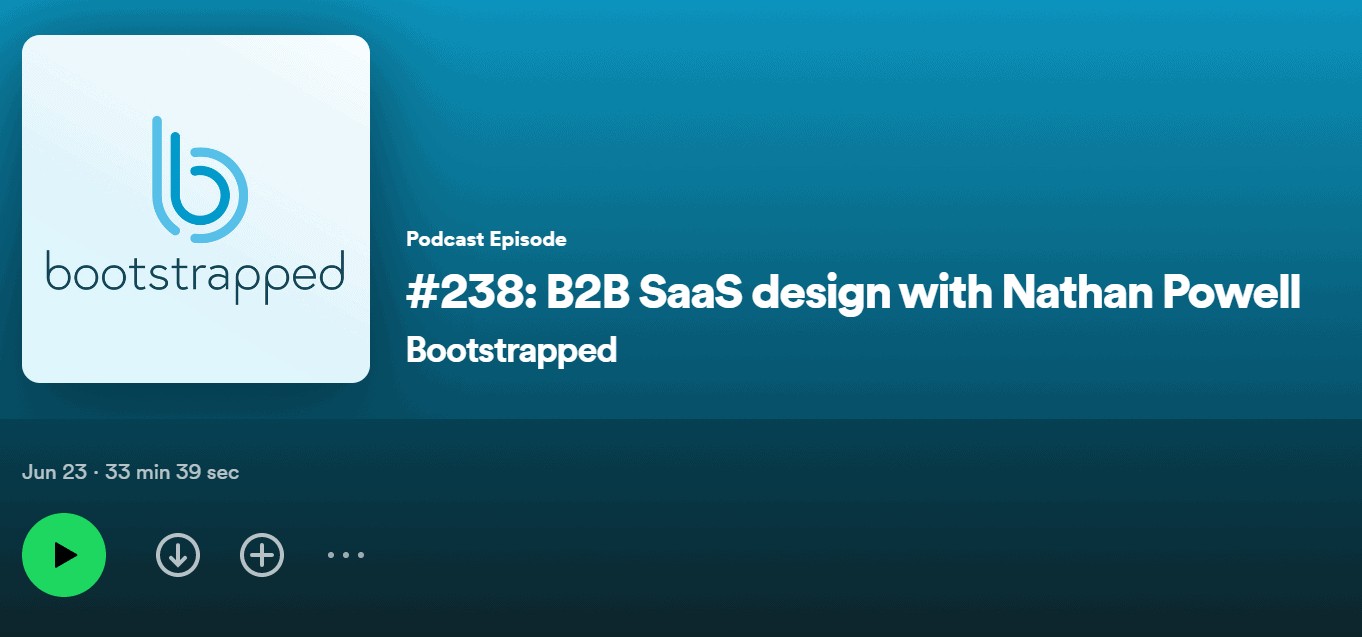
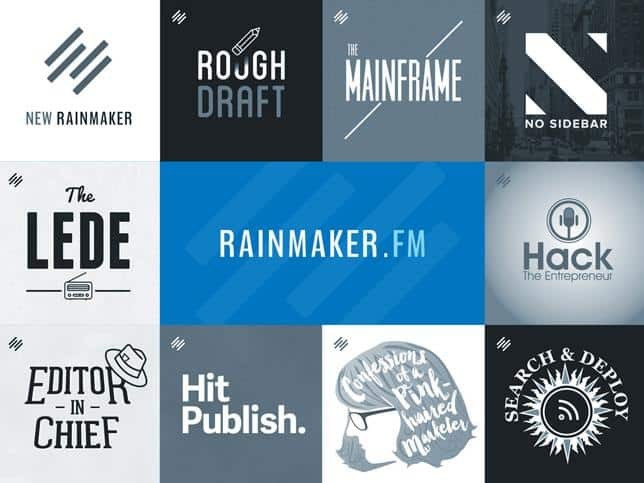
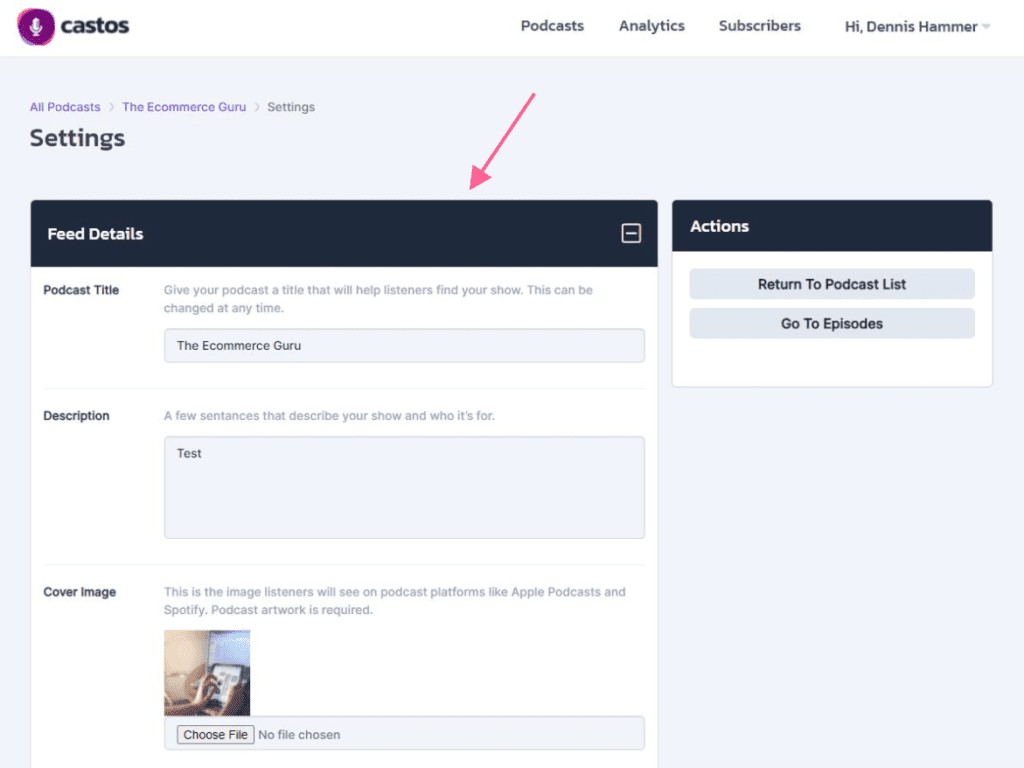
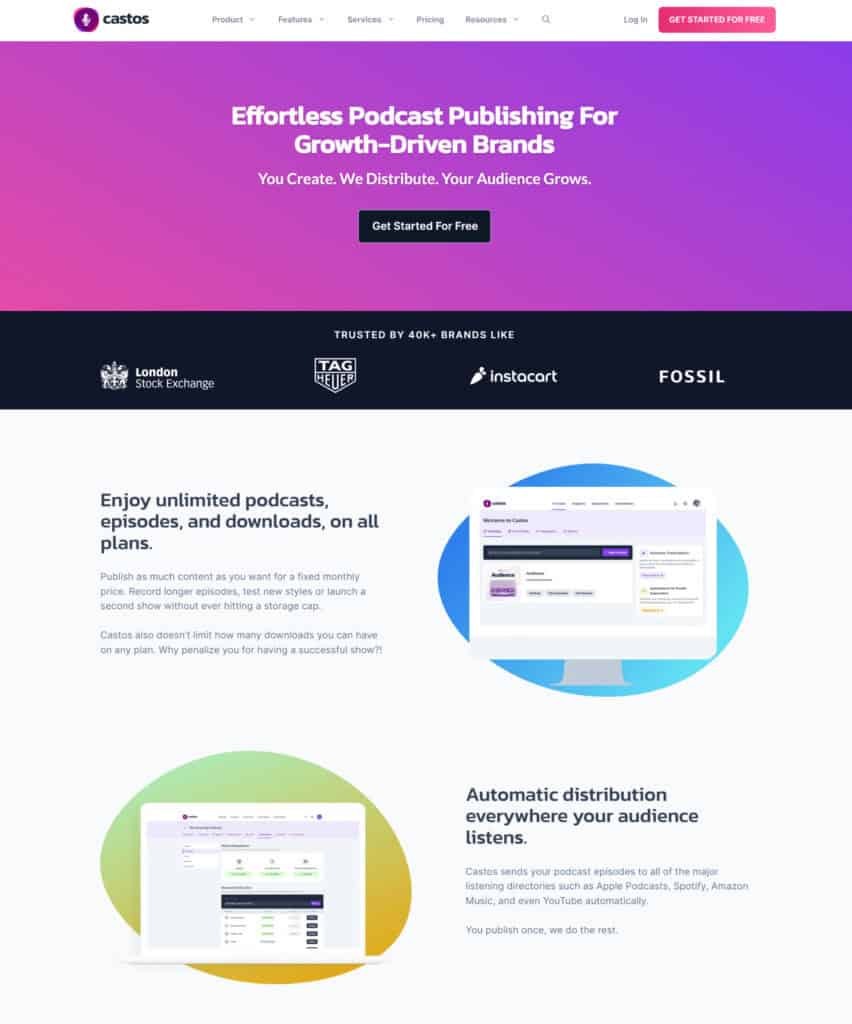
1.3. Podcasts vs. Radio Shows and Other Media
The primary distinction between a podcast and a radio show lies in how you access the content. Podcasts are available for download or streaming online, offering on-demand listening. Unlike traditional radio, podcasts are pre-recorded, providing a broad spectrum of formats.
- Episode Length: Podcasts can vary widely in length, from short snippets to hours-long deep dives.
- Publishing Frequency: Some podcasts release new episodes daily, while others follow weekly, bi-weekly, or monthly schedules.
- Format Diversity: Podcasts range from solo shows to panel discussions, offering various presentation styles.
- Topic Coverage: Podcasts cover an extensive array of topics, including news, comedy, education, true crime, and more.
1.4. Are Podcasts Free?
Generally, yes, most podcasts are free to listen to. Creators often monetize their shows through advertising or listener support via platforms like Patreon rather than charging listeners directly. However, some podcasts may offer bonus content or paid subscriptions for ad-free access or premium features.
1.5. Video Podcasts Explained
A video podcast is a traditional podcast with a video component, adding visual engagement for the audience. Videos can enhance listener engagement, attract viewers who prefer video content, and allow publication on video platforms like YouTube.
To create a video podcast, record yourself and any guests during the recording session. You can also add supplementary footage for higher production value. A simpler approach involves adding the podcast cover art as a static image to the recording’s MP3 file for platforms like YouTube.
2. The Genesis of Podcasts: A Brief History
The concept of podcasting dates back several decades. In the 1980s, “audio blogs” or “audio journals” emerged, where individuals recorded their thoughts and experiences on cassette tapes. These recordings were shared offline among friends and family due to the limitations of the internet at the time.
In the 1990s, as the internet gained traction, some radio stations and comedy shows began offering downloadable versions of their audio content. However, these weren’t quite podcasts as we know them today.
Modern podcasting took off in the early 2000s with the advent of RSS feeds, allowing users to subscribe to shows and receive automatic updates. This innovation marked the true beginning of podcasting.
2.1. The Origin of the Term “Podcast”
The term “podcast” is a blend of “iPod” and “broadcasting.” It was first coined in 2004 by journalist Ben Hammersley to describe the emerging trend of distributing audio content over the Internet, referencing the popular iPod audio player.
Although podcasts are no longer limited to iPods and can be enjoyed on various devices, the term “podcast” has remained the standard for these audio shows.
3. Podcast Varieties: Exploring Different Types
When discussing “what is a podcast,” it’s essential to recognize the diverse types available. The audio-only format is far from limiting, as shows can organize content in numerous engaging ways. Maintaining a consistent format is vital for building a reliable listener base. Shows that alternate between serious monologues, comedy panels, and fictional stories risk losing their audience.
Here are some popular podcast formats:
3.1. Interview Podcasts
The most common format, where a host interviews a new guest in each episode.
3.2. Solo/Monologue Podcasts
A simple narration by one person, ideal for experts on specific subjects. This format is often used in educational shows.
3.3. Conversational/Co-Hosted Podcasts
Two people with great chemistry engage in a conversation together, providing an engaging and dynamic experience.
3.4. Panel Podcasts
Similar to interview shows but with a larger group of people having an organic discussion.
3.5. Nonfiction Storytelling Podcasts
Episodes focusing on real-life events, such as crime stories, expeditions, or historical events.
3.6. Fictional Storytelling Podcasts
Fictional shows told across multiple episodes, similar to dramatic television series. These can be narrated by a single person or involve teams of voice actors.
3.7. Repurposed Content Podcasts
Existing content translated into audio form. For example, a church might record its weekly sermons and release them as podcast episodes.
4. Accessing Podcasts: How to Listen
Listening to podcasts is simple with internet access. Most podcasts are free, and you can use a suitable website, platform, or app.
4.1. Listening via Websites
Most podcasts have a website with pages for each episode, including an audio player, show notes, and transcripts. Simply click play on the audio player to listen to the episode.
4.2. Listening on Tablets or Phones
To listen on a mobile device, download a listening app. Popular choices include Apple Podcasts, Google Podcasts, and Spotify. Once installed, search for interesting podcasts within the app. You can listen to any episode and subscribe to receive notifications about future episodes.
4.3. Offline Listening
Many podcast apps allow you to download episodes for offline listening, which is convenient for travel or when you have limited internet access. Remember to download the episodes before disconnecting from the internet.
5. The Creative Force: Who Makes Podcasts?
Podcasts are created by individuals or teams who produce and record the content, ranging from professional productions to amateur projects. Hosts and experts discuss specific subjects, offering diverse perspectives and insights.
5.1. The Role of a Podcast Producer
Some shows employ a podcast producer to handle production and management, including recording, editing, and promotions. This allows the host to focus on creating high-quality content.
6. Getting Started: How to Launch Your Own Podcast
Starting a podcast requires a bit more upfront effort than other forms of content creation. However, once set up, creating new episodes can be quicker than writing blog posts or producing videos, especially if you outsource tasks like editing and promotion.
Here are the basic steps to start a podcast:
- Choose a topic
- Determine the right format
- Give your show a name
- Create cover artwork
- Pick up some basic equipment
- Select a podcast hosting service
- Plan your first episode
- Record your first episode
- Edit your episode
- Upload your episode
After publishing your first episode, repeat steps seven through ten for subsequent episodes. It’s recommended to have at least three episodes published before distributing your show to podcast listening apps, giving new listeners something to binge-listen to.
7. Podcast Distribution: Reaching Your Audience
Distributing your podcast involves making it available to listeners on various platforms and apps. This means submitting your RSS feed to each platform, a process that varies slightly but is generally straightforward. While it may seem tedious, this is a one-time task, as the app will monitor your RSS feed for new content and updates.
To maximize reach, publish new episodes as posts on your podcast website, including an audio player and show notes. Additionally, consider republishing new episodes as YouTube videos by adding your podcast cover art as a static image to your audio file.
If your show becomes popular, you may gain access to other distribution methods, such as joining a podcast network or even having your podcast played on the radio.
8. Podcast Networks: Collaborative Promotion
Podcast networks are similar to TV networks, distributing content through shared channels. These networks consist of groups of podcasts that collaborate to promote each other, making them attractive to advertisers who can spread their ads across multiple shows.
9. Understanding Podcast RSS Feeds
A podcast RSS feed is a crucial URL containing information about your show and its episodes. This feed delivers information to podcast directories and listening apps like Apple Podcasts and Spotify. The apps monitor the RSS feed and update with new content automatically.
The RSS feed eliminates the need to manually upload content to each platform. Instead, you update the feed, and any site, platform, or service that reads the feed receives the new information instantly.
To update your RSS feed, use a podcast hosting service. Simply upload your audio file to the host’s platform, and the host will update your feed with the new episode for the podcast listening platforms to find.
A properly functioning RSS feed requires information such as a title, description, artwork, category, language, and explicit rating. The RSS requirements for Apple Podcasts have become the standard for podcasting.
10. Podcast Monetization: Earning From Your Show
Many podcasters earn money from their shows through sponsorships (advertising). They can also generate income through affiliate partnerships, paid private memberships, merchandise, digital products, and other methods.
11. Essential Podcast Equipment
To start a podcast, you need some basic equipment to ensure professional sound quality. While you don’t have to spend a lot of money, investing in essential gear can significantly improve your show.
12. Podcast Hosting: Storing Your Files
Once you’ve recorded your first episode, you need to publish it online so people can listen to it. This requires a specialized podcast hosting platform configured for audio downloading and streaming, such as Castos.
A podcast hosting platform stores your files and generates and updates your RSS feed, which is critical for the podcast listening apps to access your show. Platforms like Apple, Google, and Spotify are directories, not hosts. They don’t store your content or generate an RSS feed for you.
While you could host your show on your own site, it’s generally not recommended. Your website host isn’t configured for it, and purchasing the right web hosting plan can be more expensive than using a dedicated podcast hosting service.
A podcast hosting service offers additional benefits, such as analytics, WordPress integrations, support, and tools to promote your show.
13. Frequently Asked Questions About Podcasts
Still curious about podcasts? Here are some common questions to help you understand what is a podcast:
| Question | Answer |
|---|---|
| What is a Podcaster? | A podcaster is someone who creates and publishes audio or video content, known as a podcast, typically released as episodes on a regular schedule. |
| What is a Podcast Host? | A podcast host is a platform or service that stores and distributes podcast episodes to listeners via various podcast directories and apps. |
| What is a Podcast App? | A podcast app is a software application that allows users to subscribe to, download, and listen to podcasts on their mobile devices or computers. |
| What is the Purpose of a Podcast? | The purpose of a podcast is to entertain, educate, or inform listeners on a wide range of topics through regularly released episodes. |
| Are Podcasts Popular? | Yes, podcasts are increasingly popular, with millions of listeners tuning in to diverse shows across various genres and interests. |
| Do Podcasts Cost Money? | Most podcasts are free to listen to, though some may offer premium content or ad-free episodes through subscriptions or memberships. |
| How Long is a Typical Podcast Episode? | Podcast episodes vary in length but typically range from 20 minutes to an hour, depending on the show’s format and content. |
| Can Anyone Start a Podcast? | Yes, anyone with access to recording equipment and the internet can start a podcast, though creating a successful one involves planning, consistent content, and effective promotion. |
| What Equipment Do You Need to Start a Podcast? | Basic podcasting equipment includes a good-quality microphone, headphones, recording software, and a computer, though additional gear like pop filters and mixers can enhance audio quality. |
| What are some podcast directories? | Some popular podcast directories include Apple Podcasts, Spotify, Google Podcasts, Stitcher, and TuneIn. |
| What is a podcast episode? | A podcast episode is an individual installment of a podcast series, typically focused on a specific topic or theme. |
| How do I find new podcasts to listen to? | You can discover new podcasts through podcast apps, online directories, recommendations from friends, or by searching for specific topics on the internet. |
| What makes a podcast successful? | Successful podcasts often feature engaging content, consistent release schedules, high-quality audio, effective promotion, and interaction with listeners. |
| What is a podcast RSS feed? | A podcast RSS feed is a URL containing information about your show and its episodes, enabling podcast directories and apps to access and update their content automatically. |
| Can I listen to podcasts on any device? | Yes, you can listen to podcasts on various devices, including smartphones, tablets, computers, smart speakers, and car infotainment systems. |
| Are podcasts available in different languages? | Yes, podcasts are available in numerous languages, catering to diverse global audiences. |
| Do podcasts have transcripts? | Many podcasts provide transcripts of their episodes, making the content accessible to those who are deaf or hard of hearing and improving SEO. |
| What Is Podcast advertising? | Podcast advertising involves promoting products or services through audio ads during podcast episodes, providing a targeted way to reach specific audiences. |
| How can I support my favorite podcasts? | You can support your favorite podcasts by subscribing, leaving reviews, sharing episodes, donating through Patreon, or purchasing merchandise. |
| What are some emerging trends in podcasting? | Emerging trends in podcasting include video podcasts, interactive episodes, live recordings, and integration with social media platforms. |
| What is a podcast network? | A podcast network is a group of podcasts that work together to promote each other, often sharing resources, advertising opportunities, and distribution channels. |
| What is a podcast hosting platform? | A podcast hosting platform is a service that stores and distributes podcast episodes, generates RSS feeds, and provides analytics and promotional tools. |
14. Need More Answers? Ask WHAT.EDU.VN!
Still wondering about podcasts or anything else? Don’t hesitate to ask your questions on WHAT.EDU.VN. We’re here to provide you with quick, accurate, and free answers, connecting you with a community eager to share their knowledge.
Are you finding it hard to get reliable answers quickly and without cost? Are you unsure where to ask your questions or whom to trust for advice? WHAT.EDU.VN offers a free platform to ask any question and receive answers from knowledgeable individuals.
14.1. How Can WHAT.EDU.VN Help You?
- Free Question Platform: Ask anything without incurring any costs.
- Fast and Accurate Answers: Get prompt responses from experts.
- Easy-to-Understand Information: Clear explanations suitable for everyone.
- Community Knowledge Exchange: Connect with others to share and learn.
- Free Consultation: Receive complimentary advice on simple issues.
Stop struggling to find answers on your own. Let WHAT.EDU.VN be your go-to resource for reliable, free information.
Ready to get started? Visit WHAT.EDU.VN today and ask your question!
Contact Us:
- Address: 888 Question City Plaza, Seattle, WA 98101, United States
- WhatsApp: +1 (206) 555-7890
- Website: WHAT.EDU.VN
15. Conclusion
We hope this guide has comprehensively answered “what is a podcast?”. If you still have questions, feel free to ask us at what.edu.vn, where answering your questions is our priority. Podcasts offer a rich and diverse world of audio content, and we’re here to help you navigate it. Now, go explore the world of podcasting and discover your next favorite show.
